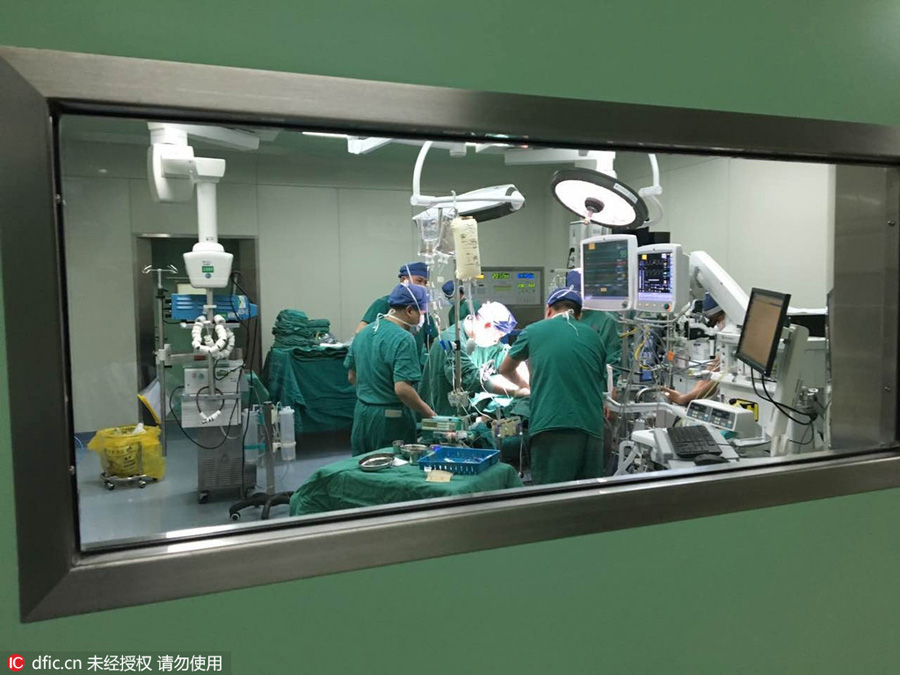







 |
|
Doctors transplant the heart from a donor in Hangzhou, East China's Zhejiang province, to a patient in Wuhan, Central China's Hubei province on May 8, 2016. [Photo/IC] |
As the first human organ transfer using the new "Green Passage" system, it only took four hours and 16 minutes for the heart to reach the patient after removed from the donator in another city.
The Green Passage system, jointly established by China's health, police and transportation authorities, aims to shorten transportation times and reduce damage or the waste of human organs, as many become unusable or dysfunctional if stored for more than 12 hours.
Using the channel, the police and transportation department work together to ensure a smooth and quick ride for ambulances; airlines allow planes carrying human organs to depart first when necessary; and if taken by train, the escort can buy tickets after boarding under emergency circumstances.
For the latest operation, the heart was removed from the donor after surgery lasting 30-minutes in Hangzhou. It was transported by an ambulance to the airport, where the organ and its escort from the Wuhan hospital enjoyed fast security, check-in, and boarding.
After landing, Wuhan assigned patrol vehicles to accompany the ambulance carrying the heart. The traffic police also used the smart control system of the street signal lights, so that the ambulance could avoid red lights each time it reached an intersection.
The transplant surgery itself started at 9 pm on Sunday less than half an hour after it arrived at the hospital.
China's Organ Procurement Organization, a group made up of doctors and nurses, is responsible for applying to the authorities for the Green Passage, after medically assessing potential donations.
It also has to ensure the safety of the transfer, and the maintenance and functioning of donated organs.
Though ranking third globally in terms of the number of organs donated, China still has a serious lack of human organs. Some patients are forced to wait for several years for transplant surgery, and many don't survive long enough to receive a new organ.
In 2015, 2,766 people donated major organs after death, almost double that in 2014.